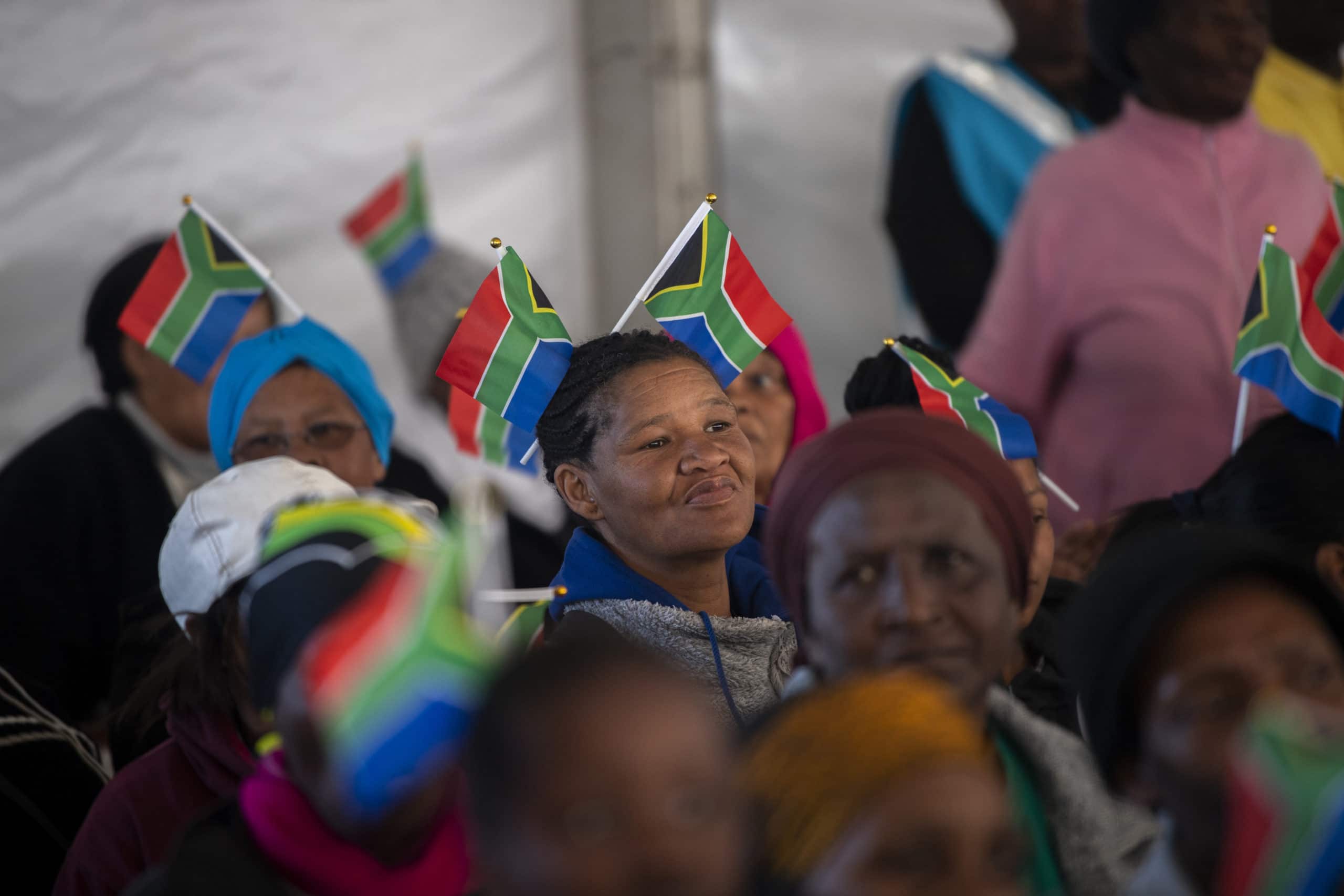August 9 marks 65 years of the Women’s March in South Africa. The fire and fortitude of the women and girls who walked up the steps of the Union Buildings that day changed the landscape of South Africa. how far have we come – or not – since? We ask these female change-makers about the issues and battles they are championing in the South Africa of today.
SIXTY-FIVE YEARS AGO, ON August 9, 20,000 women and girls of all races, classes, color and creed marched, singing and chanting, some with babies on their backs, and climbed up the steps of the Union Buildings in Pretoria, the seat of the apartheid government in South Africa’s capital city, to deliver petitions to the then Prime Minister J.G Strijdom, against the introduction of apartheid pass laws.
In the throes of apartheid in 1952, the South African government introduced the Native Laws Amendment Act. It was an offence for any African to be in any urban area for more than 72 hours unless they were in possession of a pass that had details of the holder’s identity, employment, place of legal residence, payment of taxes and permission to be in the urban areas. For the first time in South African history, black women were expected to carry passes too.
The march was led by four women; legendary struggle stalwarts Lilian Ngoyi, Helen Joseph, Sophia Williams-De
Bruyn and Rahima Moosa.
“Wathint’Abafazi wathint’ imbokodo”, cried the gathering. “Strijdom, you have tampered with the women, you have struck a rock!”
By the clock tower of the Union Buildings, hordes of women wrapped in ANC colors of green, yellow and black began arriving, with women from the cities, the towns and villages, united in their purpose to save each other from the degradation of passes.
With bated breath and in deafening silence, they watched Ngoyi, Moosa, Joseph and Williams-De Bruyn deposit 100,000 petitions addressed to Strijdom. The march signaled a paradigm shift as women were brought to the fore playing a bigger role in the struggle for freedom and democracy.
In the pages that follow, we look at how a small cross-section of women leaders today interpret the changes they are seeing and the causes they are currently fighting for in South Africa.
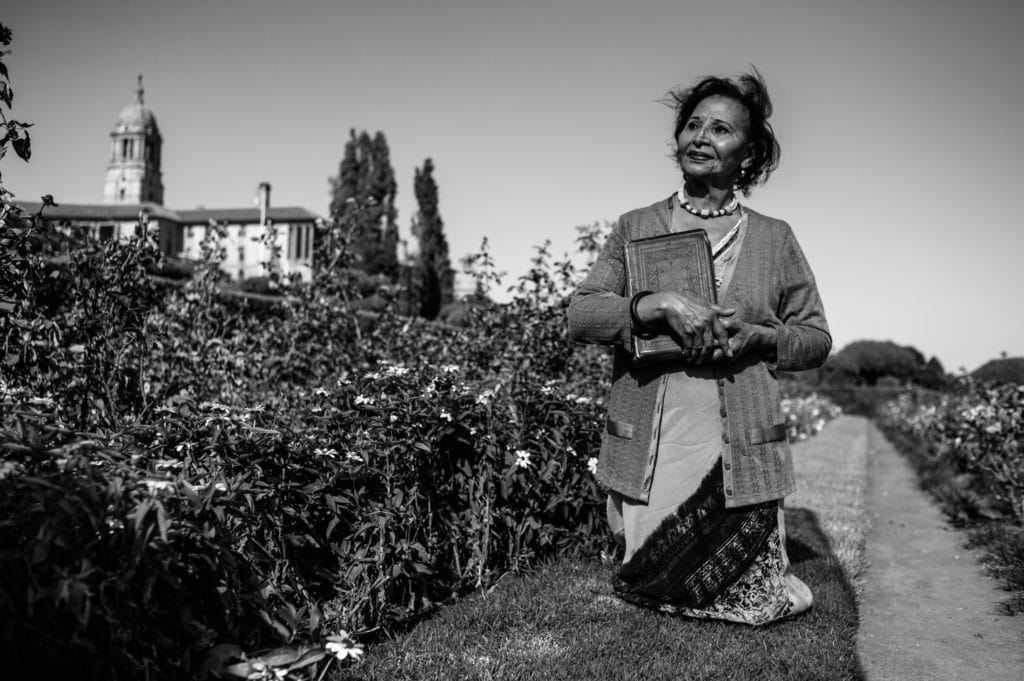
The glory of how they looked, and their dignity and grace, and that determination in lifting their feet in a place where no other African person had done before… – Sophia Williams-De Bruyn, the only surviving member of the famous quartet – including Lilian Ngoyi, Helen Joseph and Rahima Moosa – that led the 1956 Women’s March, in an interview in the August/September 2014 issue of FORBES WOMAN AFRICA
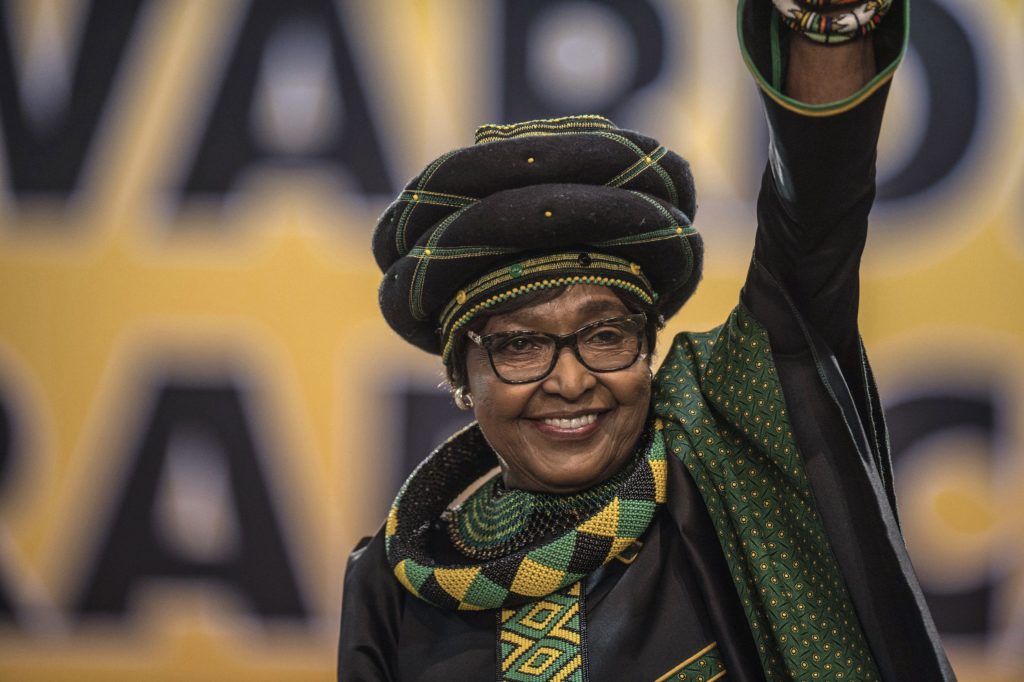
We hope this generation we leave behind will do the right thing by honoring all those who gave up their lives…particularly the women who are not always remembered. I wouldn’t have been me had I not met the Lilian Ngoyis of the day. – Winnie Mandela, in an interview in the December 2014/January 2015 issue of FORBES WOMAN AFRICA
KGOMOTSO MOKOENA
Fighting for vulnerable laborers
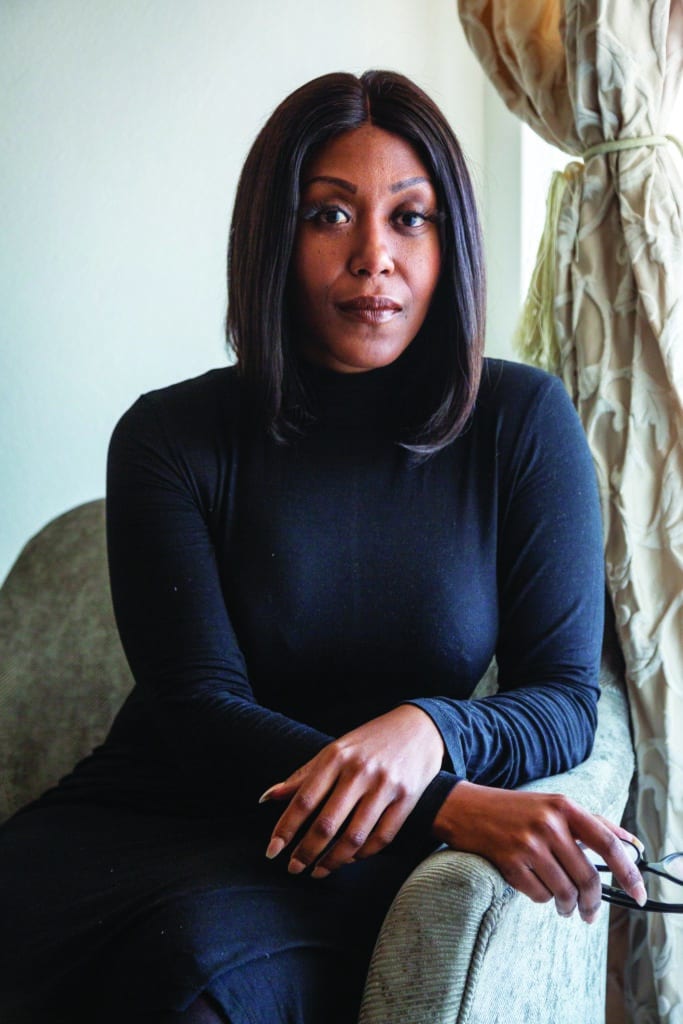
Kgomotso Mokoena is a labor law lecturer and attorney also focused on constitutional, media and intellectual property laws, with a particular interest in the gig economy. Born to parents in exile in Atlanta, United States, she returned to South Africa with her family and graduated from the University of the Witwatersrand before working as a legal clerk at the Constitutional Court and opening her own practice. Now working towards a PhD in labor law at the University of the Western Cape, she says: “Because there are so few jobs, a lot of workers end up getting exploited in relation to the gig economy.”
Currently, the major legislation that regulates their rights falls under the Labour Relations Act and Basic Conditions of Employment Act in South Africa – frameworks that Mokoena says have not been updated to reflect the technological innovations changing the dynamics between workers and employers. Mokoena’s research is focused on bridging this gap – what are the lived conditions of vulnerable workers in the gig economy, what are the levels of unfairness?
“And how do we fix that from a legislative perspective?” she says. “Personally, my passion is in labor law – specifically with a focus on vulnerable workers. Statistically, women tend to fall into insecure work more than men in South Africa.”
STACEY FRU
Fighting for literacy and safety
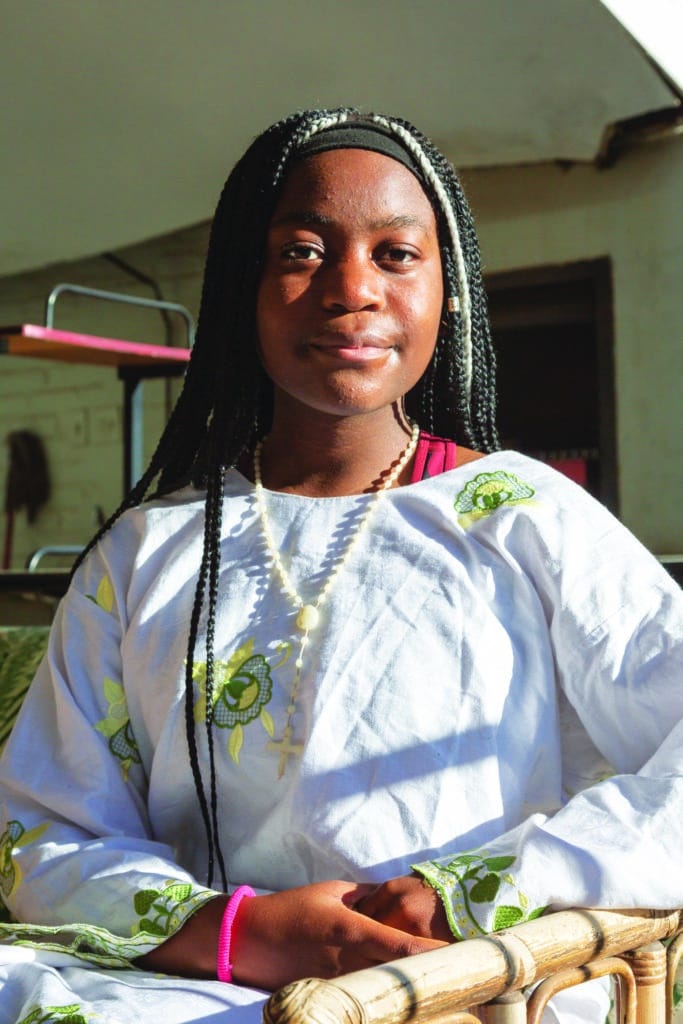
“You cannot learn in an environment where you do not feel safe and secure. Literacy and safety need one another to survive and thrive,” says Stacey Fru on the challenges facing schoolchildren in South Africa today.
The 14-year-old is a multiple award-winning author, philanthropist, activist and motivational speaker. Having been
recognized for her literary work, entrepreneurship and shortlisted for the 2020 International Children’s Peace Prize, some of her most personal and valuable work is through her Stacey Fru Foundation, a charity which aims to improve access to education in rural areas with the provision of food, sanitary materials and books.
Fru’s career began with the writing and publishing of her first book when she was eight years old. Since then, she has published four more, while also campaigning strongly for children’s rights through her ambassadorship with Save The Children.
However, in her daily life, she faces the same challenges as many of her peers during the Covid-19 pandemic.
“Many of us are unable to go to school. Most of us are just trying our best right now, to attend online classes or just focus for a prolonged period of time.”
Fru has continued to write and collaborate during the pandemic and through the recent unrest in South Africa.
“With the rioting, the Covid third-wave, everything around us is disrupting our daily lives as children. Just hold on, speak to your friends and family; you are never alone in the struggle.”
DORAH MAREMA
Fighting for climate change
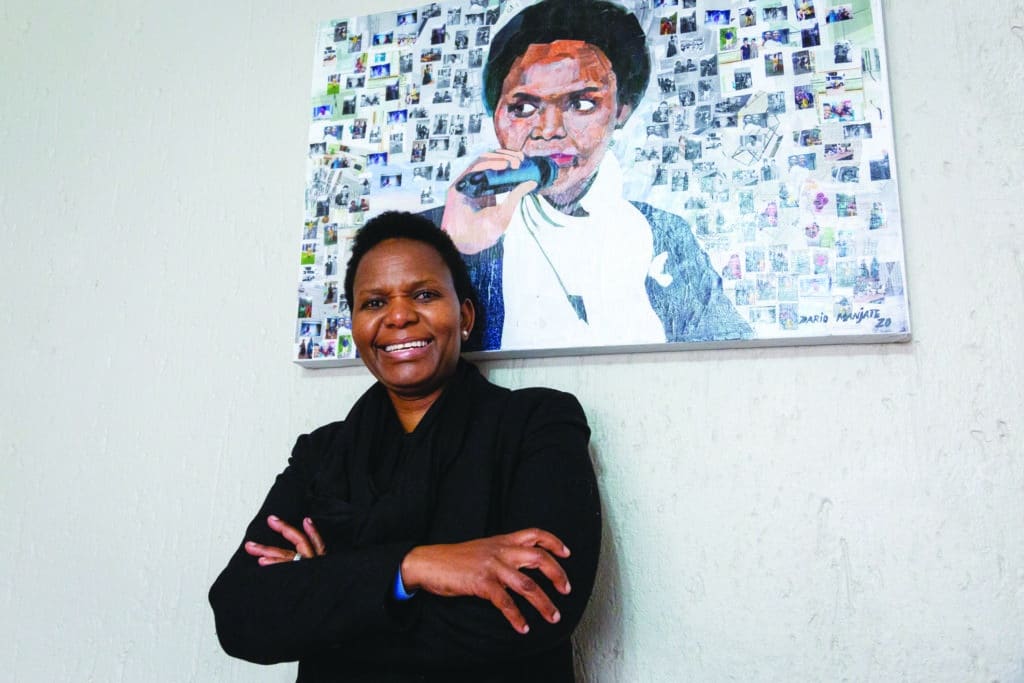
“The fact is that climate change does not affect people the same. This is true for the developed versus the developing world, and also true for gender – with women being the majority in mineral areas and subsistence farming as well.”
Dorah Marema has had an illustrious career in gender and environmental activism. Originally from a rural village outside Mopane in Limpopo, South Africa, she began her working life as part of the Transvaal Rural Action Committee, a Black Sash initiative. Her upbringing brought home first-hand experience of the gender disparities in the environmental protection space, and led her to form GenderCC, an international organization
working to ensure that gender is fully integrated in climate policy.
She currently works for the South African Local Government Association as the portfolio head for municipal sustainability, a role ever more demanding due to the pandemic and recent unrest.
“And unfortunately,the environment is the one element that gets badly affected because it doesn’t generate revenue for municipalities, however, is something that is so critical.” Marema’s tireless role does not get her down. Despite the pandemic and the global climate crisis, an optimistic outlook and everyone doing their part mitigate more harm than people think.
“You may think it’s a small action, but if I do something in your neighborhood, in your city, in your municipality, you
start doing something; all that action will add on to a bigger contribution towards already cutting down carbon emissions, and focusing on mitigation, and making sure that we’re planting trees, that we are taking care of our biodiversity… We can do it, but it has to be done through a multilateral initiative that involves all of the world together.”
PEARL PILLAY
Fighting for youth empowerment
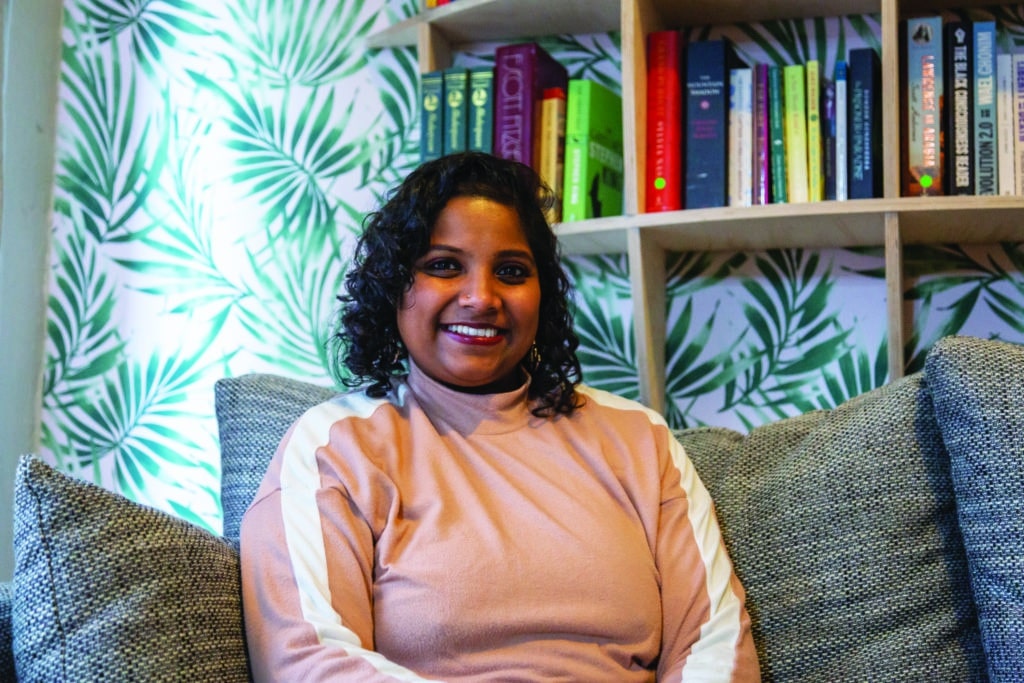
“I think when you’re in student activism, you kind of have your fingers in all of the different pies. I had a really good grounding from there, but also at home,” says Pearl Pillay, director of YouthLab, a policy think tank that aims to create spaces for young South Africans to engage on policy issues affecting them. Having begun as a research intern, Pillay has worked her way to lead the organization, and has been involved in election observation in Liberia and Tunisia, as well as policy work for the African Union – expertise she brings to the South African context.
Closest to her heart are issues closer home. Facing the challenges of the pandemic, YouthLab made a decision to launch programs aimed at supporting democratic development, and building capacity and education in communities for them to exercise democratic rights.
“We go into different communities and take time to teach young people about what it means to be an active citizen, what different democratic tools they have.”
Despite the challenges of the last year and the unique difficulties the pandemic presented, Pillay is optimistic, with YouthLab driving mental health programs to support employed and unemployed youth. “We don’t often think about wellbeing as development, so prioritizing wellbeing has allowed many to rise to the challenges of Covid. Being able to actually provide something that helps the young, that’s been a big standout for me.”
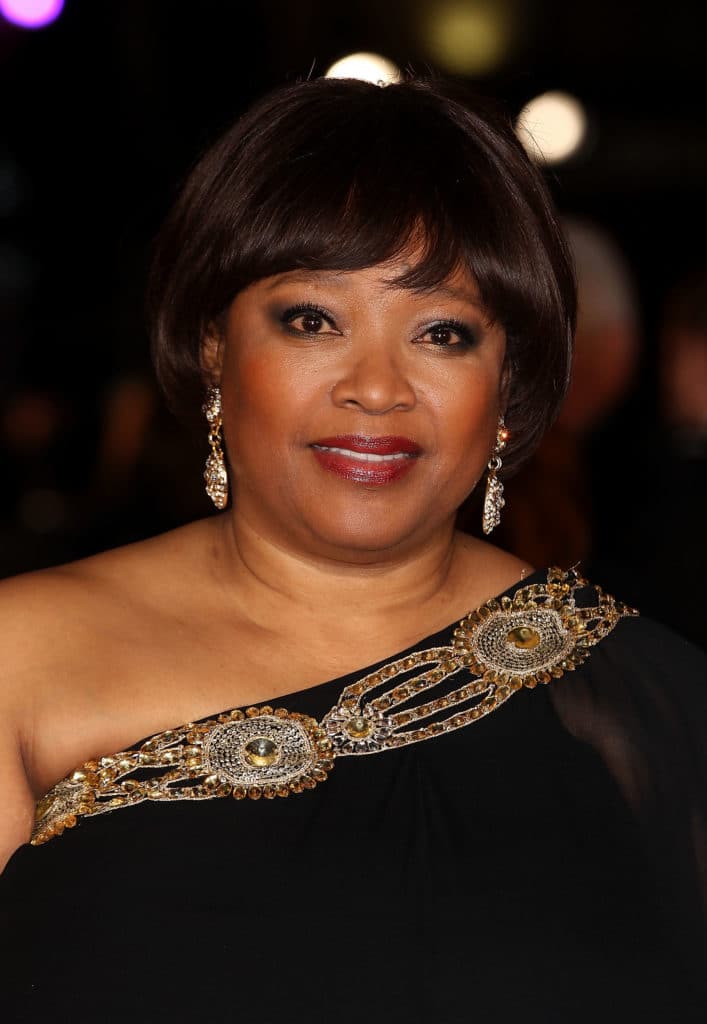
Transformation isn’t an event, it is a process, and these processes have to start with ourselves… It starts with you, it starts with the way that you actualize yourself, the way that you see yourself, the way you interact with society, how you see yourself within the home, because you very so often find that one has a loud voice when it comes to gender activism, but within the home front, you don’t stand up for yourself. The liberation has to be a mental emancipation first… It’s not only just the mindset, but we also have to give women the necessary tools to make sure that they progress.– Zindzi Mandela, in an interview for the December 2014/ January 2015 issue of FORBES WOMAN AFRICA
